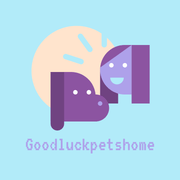Puppies spend a great deal of time playing, chewing and investigating objects. All of these normal activities involve puppies using their mouths and their needle-sharp teeth. When puppies play with people, they often bite, chew and mouth on people’s hands, limbs and clothing. This kind of behavior may seem cute when your puppy is seven weeks old, but it’s not nearly so endearing when he’s three or four months old—and getting bigger by the day!
Here’s an exact quote from one of pet lovers:
…My husband and I just adopted a beautiful male yellow lab. David is 12 1/2 weeks old and we’ve had him just over a week. I want to bounce some questions off you from what I’ve read on your site, as David is driving us crazy…Biting. To go along with the chewing, he’s gotten more than a touch nippy. Heck, he’s snapped at my face while I was holding him a couple of times. Again, no corrections or ignoring is helping…
–David’s Mom
That was actually just one of a laundry list of questions David’s mom had about David the bouncy 12 1/2 week old Labrador Retriever puppy.
So the question is how do you stop puppy biting.
A mouthy, bitey, nippy, puppy is perfectly normal and I would actually be surprised if you were not experiencing some growing pains with a nippy puppy.
Tips On How To Stop Puppy Biting
One of the reasons why puppies stay with their litter mates until they are 7-8 weeks old is so they learn bite inhibition.
If you’ve ever observed a litter of puppies playing you probably noticed that some puppies will get a little too playful with biting and nipping.
When puppies are playing, biting, and nipping each other play time stops when one of the puppies lets out a yelp and walks away.
Over time puppies will learn that biting too hard ends playtime and will learn to soften their mouths. After all puppies don’t ever want play time to end…do they?
This brings us to our first tip on how to stop a puppy from biting:
- Make your puppy think he is hurting you when he bites by letting out a puppy yelp! Basically you are trying to replicate the same behavior as one of the other puppies in the litter. So, let out a nice yelp to briefly startle your puppy and stop playing with him. This will teach your puppy that when he bites to hard playtime ends. Ending playtime is key when you do this because I’ve seen and experienced puppies that think the yelp is just part of the game and if you continue handling or playing they sometimes get more excited and come back with an even harder bite.
- Redirect your puppy biting by slowly removing your hand from his mouth and replace with one of his dog toys. This is probably our favorite technique. Whatever inappropriate item your puppy is biting whether it be your hand, arm, feet, or face, slowly remove the item from your puppies jaws and replace with his favorite dog toy or chew then leave him alone to play with his toy for a while. We have found that it’s a good idea to have lots of different textured toys as your puppy will most likely get bored if all he has is a bunch of plush toys.
- Give your puppy a command. If you’ve been working on basic obedience then giving your puppy a command will sometimes get him to stop biting and go into obedience mode.
- Exercise your pup’s mind and body – there are two sides to this coin. You want your puppy to get plenty of exercise both physically (long walks, playing in the yard with him etc.) and mentally (work on his training and get him thinking).
One more word for the wise. NEVER SLAP OR HIT YOUR PUPPY! Your puppy will probably think one of two things:
- You are playing and he’ll come back trying to bite you even harder or
- He will learn to fear you and your hands.
Hitting your puppy will most likely lead up to even bigger behavior problems down the line.
Every puppy is different some of these tips may work with your current puppy, but not with your next puppy.

Leave a comment